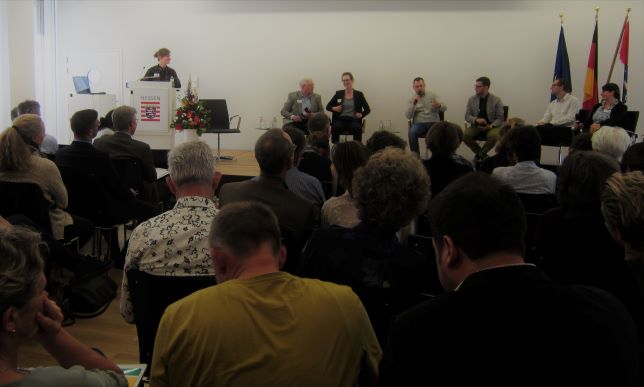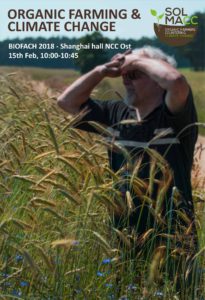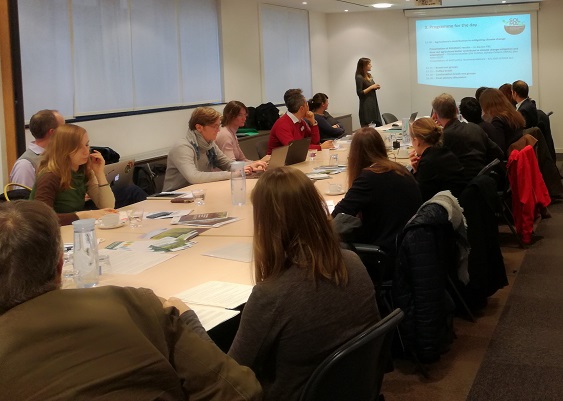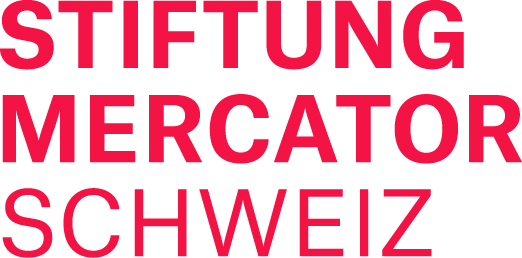Final SOLMACC conference in Brussels
 16 May 2018, Brussels, Germany
16 May 2018, Brussels, Germany
SOLMACC is soon coming to an end after five years of implementation. To showcase the positive impact that farmers can have on tackling climate change, its myriad stakeholders have gathered during the final conference. Scientists, farm advisors, and organic farmers involved in SOLMACC presented results achieved since the project’s kick-off back in 2013, when 12 demonstrations farms in Sweden, German and Italy started implementing climate-friendly practices linked to optimised on-farm nutrient management, crop rotation, tillage systems, and agroforestry.
The event was hosted by Martin Häusling (MEP) and the Hessen Permanent Representation to the EU, with Dr. Beatrix Tappeser, State Secretary of Hessen. Mr. Häusling started off the event with a discussion around the need of a more systemic approach to increase climate change mitigation and
adaptation in the agriculture sector, detailed in SOLMACC’s policy recommendations. Presentations then continued to share the results and lessons learned of the project from project partners, farm advisors, and even Kjell Sjelin, a SOLMACC farmer that came from Sweden and gave us a first hand account of the benefits that he has witnessed from implementing the new practices.
Conclusions of the expert panel highlighted the need for farmers to be adequately supported through public schemes in the Common Agriculture Policy (CAP) to be able to provide public goods, such as greater biodiversity.
Presentations from the event:
- Changing farming practices to tackle climate change – SOLMACC project introduction – Stephanie Fischinger & Sigrid Griese, SOLMACC national coordinators, Germany (Bioland)
- Results from the scientific monitoring of SOLMACC practices – Lin Bautze & Matthias Meier (FiBL)
- Italian context within SOLMACC – Daniele Fontanive (AIAB)
- Policy recommendations for greater climate change mitigation and adaptation of EU’s agriculture sector – Eric Gall (IFOAM EU)
photo credits: Tsvetelina Palatovska
SOLMACC at BIOFACH 2018

15 February 2018, Nurnberg, Germany
The SOLMACC project, coordinated by IFOAM EU, was presented at the BIOFACH seminar “Organic farming and climate change – potential for greater climate adaptation and mitigation for EU’s agriculture.” Lin Bautze (FiBL DE) and Sigrid Griese (Bioland e.V.) discussed the role of organic farming in the fight against climate change and outlined specific farming practices that can provide both environmental and socio-economic benefits. Policy recommendations were given for ensuring greater mitigation and adaptation on EU’s agriculture by Eric Gall (IFOAM EU).
Presentations from the event:
- Climate Change Mitigation and Adaptation – Results from the SOLMACC Project – Lin Bautze (FiBL)
- Maßnahmen zur klimafreundlichen Anbaupraxis in der Bio-Landwirtschaft – Erfahrungen aus dem SOLMACC-Projekt – Sigrid Griese (presenting in the place of Ralf Mack) (Bioland)
- SOLMACC Policy recommendations – Eric Gall (IFOAM EU)
Experts discuss strategies for upscaling climate-friendly farming practices – SOLMACC policy recommendations expert workshop
27 November 2017, Brussels, Belgium

bty
How can climate-friendly practices become more mainstream in the EU agriculture and food sectors? To answer this question, 20 experts including policy makers, farmers, policy analysts, and civil society representatives gathered to develop policy recommendations.
The workshop started with a presentation of preliminary results of greenhouse gas (GHG) emission reduction and climate adaptation through applying climate friendly practices on 12 demonstration farms in Sweden, Germany and Italy, as part of the SOLMACC project. Additional perspectives on the potential of agriculture to contribute to climate change mitigation and adaptation followed from Christine Muller (from DG CLIMA), Sylvain Pellerin (from INRA) and Ben Allen (IEEP). Their views led towards a discussion on what policy recommendations should be prioritized, what was still missing, what bottlenecks exist and how best to overcome them.
Policy recommendations discussed included, for example, a better integration of climate change policies in agriculture and food sectors, adopting a systemic approach to reducing GHG emissions from food production, and transforming the Common Agricultural Policy to make it fit for climate action.
Presentations held at the event:
- Results for mitigation and adaptation from the SOLMACC farms – Lin Bautze (FiBL)
- How can French agriculture contribute to reducing greenhouse gas emissions? – Sylvain Pellerin (INRA)
photo credits: Artur Sikora
SOLMACC socio-economic roundtable
The economic feasibility of climate friendly practices will play an important part for the adoption by farmers and advisors. Socio-economic aspects are of major importance for the implementation of these practices. These aspects were addressed in the socio-economic roundtable that discussed strategies to improve the valorization of food products produced with climate friendly practices. The participants discussed innovative strategies for e.g. marketing, cooperation or labelling and the role of the CAP and RDPs. The results will feed into a brochure that demonstrates these strategies to farmers and other actors in the food chain
The event took place on 14 February in Nuremberg.
Presentations held at the event:
- Introduction – Ann-Kathrin Trappenberg (IFOAM EU)
- How can (organic) farming practices reduce greenhouse gas emissions? – Dr. Andreas Gattinger (FiBL)
- The socio-economic impact of climate-friendly practices – Lin Bautze (FiBL)
Practical research for climate protection in organic agriculture
Agriculture can and should actively protect the climate and organic farming in particular has a great potential. Two research projects, one of them being SOLMACC, show how science and practice work together to develop practical solutions to realise this potential.
The event took place on 15 February at BioFach.
Presentations held at the event:
- Introduction – Stephanie Fischinger (Bioland)
- Practical research for climate protection in organic agriculture – Dr. Andreas Gattinger (FiBL)
- Experiences from the SOLMACC project – Lin Bautze (FiBL)
- Experiences from the MERCATOR adaptation project – Dr. Adrian Müller (FiBL)
This event was supported -in addition to the support received from the LIFE programme of the European Union, by Mercator Foundation Switzerland:
How can the CAP drive climate change mitigation and adaptation in the agriculture sector?
The EU has committed to reduce GHG emissions by 40% by 2030, and the agriculture sector will be part of this effort. As part of these reduction targets, sectors such as transport, building, agriculture etc. are covered by the Effort Sharing Regulation and will have to achieve a 30% overall reduction on average.
How can significant GHG reductions in agriculture be best incentivised through the current CAP and RDPs? How could the next CAP – after 2020 – best contribute to the EU’s environmental and climate change objectives? How can these objectives be met in a synergetic way rather than addressed in silos, and without creating administrative burdens for farmers?
The event took place on 9 November and included presentations and discussions on:
- the results of innovative practices being applied by farmers under the SOLMACC (Strategies for Organic and Low input farming to Mitigate and Adapt to Climate Change) project
- approaches by regional governments to tackle climate change by the farming sector and
- views of policy makers and stakeholders on how the CAP can better support climate change mitigation and adaptation in agriculture, in light of the EU targets for 2030.
How can farming practices reduce GHG emissions?
Presentation of first SOLMACC results from demonstration farms – Dr. Andreas Gattinger, FiBL
Regional approaches to climate action
The role of agriculture in the North Rhine-Westphalian Climate Action Plan – Martin Hannen, Ministry for Climate Protection, Environment, Agriculture, Conservation and Consumer Protection of the State of North Rhine-Westphalia
Scenario analysis and measure assessment for future rural development planning in the Veneto Region – Prof. Carlo Giupponi, Director, Venice Centre for Climate Studies, “Ca’ Foscari University of Venice”
How can the CAP better support climate change mitigation and adaptation in agriculture, in light of the EU targets for 2030?
The agriculture sector within the European Commission proposals on Climate Change – Simon Kay, Unit C3 Land Use and Finance for Innovation, DG CLIMA
The role of Rural Development Programmes – Sandra Naumann, Senior Fellow, Ecologic Institute
How to climate proof agricultural policy? – Clunie Keenleyside, Senior Fellow, IEEP
